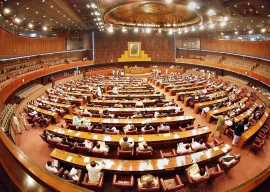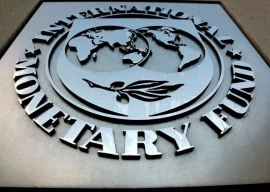
There was consensus on three broad themes: first, on the importance of having free and fair elections in Pakistan, with some expressing hope of the emergence of a government that would be focused on domestic economic growth and development, coupled with socially responsible policies. Second, there was great emphasis on the need for the new government to remain irrevocably wedded to democracy and the rule of law to make institutions the drivers of political, economic and social reforms. Third, accelerating the peace process with India was emphasised, so as to enhance regional cooperation not merely for purposes of trade but also for regional understanding on terrorism, water and energy issues.
The one issue that generated the most animated exchanges was about significance of recent signals of a possible change in Pakistan’s security and intelligence agencies’ attitude towards the reconciliation process in Afghanistan. While there was appreciation for initiatives taken over past months to breathe life into the peace process, many viewed it as a tactical ploy to improve US-Pakistan relations which had fallen off a cliff, as well as an effort on the part of Pakistan to enhance its role in developments related to the withdrawal of foreign forces from Afghanistan. A few were, however, willing to give Pakistan the benefit of doubt, speculating that this may well be a strategic shift on the part of the ‘establishment’, arising from its appreciation of the harsh realities currently obtaining in Pakistan and the near universal disapproval of its perceived ‘sympathy and sustenance’ to militants and extremists. There was, however, unanimity on the view that unless this was truly so, Pakistan’s own problems of security and governance would never be resolved, irrespective of which party or parties won the coming elections. Not only would the peace process with India peter out but Pakistan’s international isolation would increase and its economic straits would worsen.
There were also repeated expressions of concern about increasing violence and intolerance in society, with cultural, linguistic, ethnic and sectarian interests dominating the national debate. This led some to point out that failure to address these tendencies forcefully, but politically and with national consensus may well result in the country’s disarray as a functioning state. If this were to happen, it would not only mean a greater likelihood of terrorists getting deeper entrenched in Pakistan, but also of the theft or leakage of nuclear and missile technology and material — a prospect viewed in cataclysmic terms in the West.
The one silver lining for Pakistan was the widely held view that while the international community was rightly focused on the dangers looming ahead for Afghanistan after the withdrawal of foreign forces, it would be a grave error to ignore Pakistan or to see it only through the prism of Afghanistan. It was emphasised that tackling the deepening economic crisis and growing militancy at home would have a positive impact on itself, on its attitude to peace in Afghanistan and to stability in the region. This led to the strong recommendation that both the US and Europe needed to maintain their current levels of assistance to Pakistan, while continuing to urge Islamabad to see the Afghan withdrawal as an opportunity to resolve many of its own problems.
Published in The Express Tribune, December 19th, 2012.
COMMENTS (34)
Comments are moderated and generally will be posted if they are on-topic and not abusive.
For more information, please see our Comments FAQ




































1713853507-0/MalalaHilary-(2)1713853507-0-270x192.webp)







Mr Fatemi makes all valid points except that a two-day conference was not needed to emphasise these issues. These very issues have been highlighted on countless times on these blogs by so many readers and the world community at large. Everybody who matters knows this, but everybody that matters is as powerless as the flood victims anywhere in the world except of course Pakistan's army and ISI. And they are superglued to their 'strategic depth' doctrine. Eventually all glues lose adhesiveness but here the cost is going to be exhorbitatnt for Pakistan.
Begging bowl syndrome continues. We will burn down our house unless you give us some aid. This guy wasn't much of a diplomat, no wonder his tenure in the US was brief and his column here betrays his lack of tact and diplomacy.
It is no secret that the terrorists are actively pursuing their evil agenda on both sides of the border. They are on a mission to destabilize the region with their acts of terror. The U.S., Pakistan and Afghanistan are all victims of terrorism. We have lost thousands of brave soldiers in fighting terrorism. The cross border attacks are certainly an area of concern. And we have been regularly emphasizing cross border coordination between the regional partners. We cannot allow ourselves to become victims of the blame game. Instead, we must focus on our common objectives, and work closely to negate the threat that’s preventing us from stabilizing the region.
Ali Khan DET, United States Central Command www.Centcom.mil/Ur
@cautious: You apparently live on another planet. But be thankful for having Pakistan as a buffer. In the old days Afghan expeditions reached up to, rather founded Delhi. How about changing your cautious name to something else?
The end game was decided without input from Pakistan and designed in a way that would protect American interest regardless of what Pakistan does. Pakistan has finally figured out that a decade of duplicitous behavior has resulted with angry NATO, angry American's, angry Taliban, and neighbors on all borders who view Pakistan with suspicion and occasional hostility. Is it a wonder that Pakistan is finally taking a few steps to accommodate Afghanistan or the American's - no. Is it a surprise that this author is still trying to bolster the importance of Pakistan to lobby for the money train to continue - no. Pakistan knows that time is running out and they have a lot of bridges to repair in a short period of time.
To watch the courageous Afghan freedom fighters battle modern arsenals with simple hand-held weapons is an inspiration to those who love freedom
— U.S. President Ronald Reagan, March 21, 1983
@BlackJack: Not sure if that quote originated from Mr. Irfan Hussain because I read the "Blazing Saddles" analogy from US media (not sure who though) before I read it on Dawn. . In the movie Blazing Saddles, the black sheriff when confronted by an all-white mob holds a gun to his own head and threatens to kill himself thereby confusing the mob. You should watch the movie, it is an oldie but consistently makes it as one of the greatest movies of all time.
The United State and European powers beginning to realize Pakistan being Key Driver in keeping peace in the region. The Western Powers now Embracing Pakistan to help sustain their gain in Southern Russia, Afghanistan, India and Turkey. Helping Pakistan economically as well as Positioning Pakistan as a regional Gateway keeper will advance their economic and political interests. Pakistan is now emerging as a True Lynchpin or much needed partner. Will Pakistan see as an economic opportunity to grow with or waste itself with weapon acquisitions. The game is in Pakistan ball park, grow together or perish.
How abt leaning on your all-weather friend - China for dole-outs Mr. writer?
I'm not sure if they would be enthusiastic in pouring money in a black hole.
US, Europe need to? Are they needs or actually wants?
Pakistan does't needs any advise from anyone as to what is to be done after 2014... Pakistan has got that potential and the capacity to become a terrorist state without any help from Afghanistan !!! Those who doubt that have to really do there homework ....
Writer does not offer new ideas, his recipe is a rehash of what the deep state has been propagating, pay up or or terrorism wins! As it is, we are not sure whether the Americans will leave and if they do when and how, therefore making suppositions may sound intelligent but are really irrelevant.
Pakistan really has little to offer the World except trouble but the world has changed substantially since 9/11 and 26/11 and there is little appetite for policy of appeasement and molly coddling. The World has for decades offered help in rooting out extremism and militancy but Pakistan is demanding Money which often fans the same forces. If Pakistan lacks the will to confront these forces that not only endanger it but also the region and world at large, the spigots of liquidity offered to keep it afloat will dry out fast. The narrative has to change very fast because time and tide waits for no man.
There is no doubt that the situation arising out of the departure of foreign troops from Afghanistan repressents a great opportunity for Pakistan but only if the Pakistani leadership is able to demonstrate far-sightedness and resolve. I doubt that the current leadership has in itself such qualities. If not, we are headed for far greater difficulties and this time, we will have no international support or even sympathy. Thanks to the writer for drawing our attention to the challenges ahead.
In the past 10 years you have not taken a single step worth mentioning here to eliminate terrorism. You are only reacting to the terror. No proactive steps to eliminate militancy mindset of the public, youth in particular. No laws to curb hate speeches and materials. No laws to curb proliferation of arms. ETC. Still you ask for aids. Only you can do this in the whole world!
A friend of mine got a few Pigeons for a pet. They were cute at first, but pooped all over the place. The stink of it and the constant burden of having to clean up the rubbish, made him think that he should give it up.
He calls his friends, sings oodles about the birds. Hides the crappy part. Shows him pics. Waits till he says they are very cute and cuddly and offers it to him.
The other guy doesn't realise how messy the birds can be. When he finally gets them, they poop all over the place!
Pakistan was worried about not influencing Afghanistan, but is now faced with the prospects of Afghanistan influencing Pakistan!!
The world should do this and that and then some more and everything for Pakistan. If that does not happen, the implied threat is clear. But what will Pakistan do to take care of its own? Will it stop biting the hand that feeds and arms it? Will it stop spreading falsehoods casting its largest benefactor as its enemy? Will it stop harbouring and exporting "strategic" assets to Afghanistan and India? When will Pakistan conduct itself per the standards of a responsible nation? When will it stop holding itself hostage?
Still American and west centric approach is utter dis honesty(with nature and ground reality) by our writers if they do not consider the say of Iran Russia China Tajikistan Uzbikistan and Pakistan,they all have to be on-board together after 2014 in Afghanistan for each others economic and strategic gains,If our writers and thinkers are not giving importance to this then like always living in fools paradise and guiding policy makers to new wrong bath is in our blood.
Subtle way of begging. If you don't give us alms,we would be forced to sell our nuclear arms to taliban,who would plan another bigger 9/11. This time U.S.A. would indeed bomb pakistan to stone ages if she plays double games.....
@Mirza: "We do not need more arms and cash. We need civilian aid in the form of goods only with complete oversight. "
How will the oversight be executed? If AMerican administrators come here, they will be called 'Raymond Davis' and their lives will be at threat. If money is routed to NGOs, the NGO workers get kidnapped or killed. SO many leading organizations including the Red Cross have walked away from Pakistan.
Most significant differences happens through projects in education, health etc. they cannot be transfer of goods. It has to be a combination of cash and technology. So the corruption has to be addressed, it cannot be bypassed.
@Author: What happened to trade not aid? Still trying to blackmail the world with your nukes - eh?
@Mirza:
The US gave Pakistan over $30B in the last 10 years including all the military support funds. It is not $14B.
"The Op Ed ends with “strong recommendation that both the US and Europe needed to maintain their current levels of assistance to Pakistan”
As for the author's above statement, why should Pakistan be given anything since it was solely responsible for creating the Taliban, giving sanctuary and support all global terrorists including Al Qaeda? Why not Pakistan cut its bloated military spending to support its own need for funds? In other words, why shouldn't Pakistan asked to stand on its own leg when it can afford huge military spending, expensive nuke & missile programs?
“it would be a grave error to ignore Pakistan or to see it only through the prism of Afghanistan” It is indeed a grave error to do this. Pakistan is much worse and capable of killing itself with incidents like killing of polio vaccinators, swedish lady killing etc. The only language Pakistan knows is terrorism and nonstate actors and is full of people with pseudo martial tendencies. It thinks itself as a superior martial nation inspite of its surrender to India in 1971.A basic overhauling of Pak educational system getting rid of religious bigotry and hate curriculam should be the first and most important step that should be shoved thru pak's throat first.
Again we come back to Irfan Hussain's brilliant line - "Pakistan is the only country in the world that negotiates with a gun to its own head".
The Op Ed ends with "strong recommendation that both the US and Europe needed to maintain their current levels of assistance to Pakistan" During the days of Mush the USA alone gave more than $14 billion to Pakistan and it simply disappeared. Not a single kilowatt of electricity was added and not much was done for public. After finding OBL in an army base and his killing the gravy train has slowed down and it would come to an end. We are a proud nation, a nuclear power with huge army. We do not need more arms and cash. We need civilian aid in the form of goods only with complete oversight. This is the only way to neutralize the terrorist mindset. When the civilians would see the US aid is making a difference in their lives things would improve. It would be a win-win situation for poor masses and the donors. I am sure the deep state and rightwing would hate the oversight but that is the only way to help people in Pakistan.
Pakistan should be seen minus establishment and its eerie governance, and minus religious outfits.Pakistan is its talented and educate middle class who produce Coke studio music, fashion industry and sparkling models. That Pakistan needs to be saved from the crushing burdens of religious and security establishments.
"it would be a grave error to ignore Pakistan or to see it only through the prism of Afghanistan" Why it would be great error to ignore Pakistan ,isn't it an open threat that establishment is conveying to world community through media.Should we assume Pakistan will continue it's proxy war in case Pakistan's dictation is not taken. Pakistan establishments thinks it has a very important place in world community.That's true- However there is a difference in understanding that - important place-World thinks it, as failing state where as, Pakistan thinks it as state, failing super powers in this region. This self deception has caused great suffering for the whole nation.
With each article I understand more and more as to why the ambassador credentials under your name are past tense and short lived.
Pakistan has yet to take a single significant step toward eliminating militants or their Waziristan sanctuaries. Until action replaces rhetoric, there should be no funds supplied to Pakistan by anybody. Pakistan's helpful rhetoric can be rewarded by helpful rhetoric on the other side; but not by dollars.
In other words West should continue sending free lunches to Pakistan, which go straight into the pockets of Generals, politicians and bureaucrats.
Europe should do this, America should do that but not a single sentence for what Pakistan is accountable for. Nobody can help someone until he decides to help himself.
loll 2014 withdrawal, Pakistan thinks that Indians will just go out of Afghanistan and their investments will be doomed. Afghan economy is just getting on its feet and justice system is about to be tested on the Kabul bank robbery. I understand why Pakistan would want to install Taliban back in power to stop Pakistan from disintegration, but No way Jose. US is leaving a footprint for a reason, to keep an eye on Iran and stop the installation of regime by ISI and Iran. Who knows how big the footprint might be? I heard air force, because that's what the Afghan lack for now, couple thousand troops and aid. US also is helping the Balochs since Pakistan played the game first.